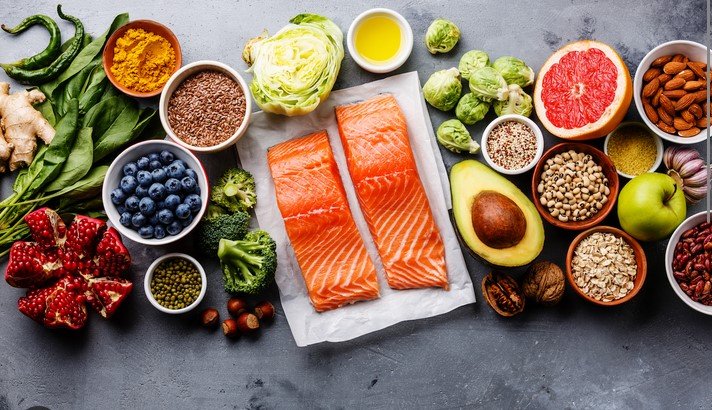Superfoods have gained widespread attention in the health and wellness world, often promoted for their exceptional health benefits. But what exactly are superfoods, and why should they be part of your daily diet? Superfoods are nutrient-dense foods packed with vitamins, minerals, and antioxidants. These foods provide a wide range of health benefits and support overall well-being. This post explores what superfoods are, why they’re essential, and how to incorporate them into your meals.

What Are Superfoods?
Superfoods are foods rich in nutrients, offering high concentrations of vitamins, minerals, antioxidants, and other compounds that support health. Most superfoods are plant-based, but some animal products, such as fatty fish, can also be considered superfoods. These foods have the power to reduce inflammation, boost immunity, improve heart health, and prevent chronic diseases.
Examples of common superfoods include kale, spinach, berries like blueberries and acai, and fatty fish like salmon. By incorporating these foods into your diet, you can provide your body with the nutrients it needs to function at its best.
The Health Benefits of Superfoods
Superfoods are packed with nutrients that offer significant health benefits, including:
- Boosting Immunity: Superfoods like citrus fruits, garlic, and leafy greens are high in Vitamin C, which supports the immune system and helps fight infections.
- Fighting Inflammation: Foods like turmeric and ginger contain anti-inflammatory compounds that reduce chronic inflammation, a key contributor to many diseases.
- Promoting Heart Health: Fatty fish, nuts, and avocados are rich in omega-3 fatty acids, which help lower the risk of heart disease and improve cholesterol levels.
- Supporting Digestive Health: Fiber-rich superfoods such as oats, beans, and sweet potatoes promote regular digestion and prevent constipation.
- Enhancing Brain Function: Superfoods like blueberries, dark chocolate, and walnuts are packed with antioxidants and healthy fats, supporting brain health and protecting against cognitive decline.
By regularly consuming superfoods, you can boost your energy, improve your health, and reduce the risk of chronic illnesses.
How to Incorporate Superfoods into Your Diet
Incorporating superfoods into your diet is easier than you think. Here are a few simple ways to add superfoods to your meals:
- Smoothies: Blend spinach, kale, chia seeds, and berries into a smoothie for a nutrient-packed breakfast or snack.
- Salads: Add avocado, nuts, and seeds to your salad for a boost of healthy fats and protein.
- Snacks: Snack on almonds or walnuts for a filling, nutritious treat.
- Soups and Stews: Add turmeric, garlic, or lentils to your soups for extra flavor and health benefits.
- Grains and Vegetables: Include quinoa, sweet potatoes, or beans in your meals for added fiber and nutrition.
These simple changes can help you enjoy the many benefits of superfoods without overwhelming your daily routine.
Are Superfoods a Cure-All?
While superfoods are beneficial, no single food can provide all the nutrients your body needs. A healthy, balanced diet, including a variety of foods from all food groups, is essential for overall health. Superfoods should complement a well-rounded diet rather than replace it.
Additionally, the term “superfood” is not officially regulated, so focus on whole, minimally processed foods instead of relying on supplements or packaged products marketed as “superfoods.” By eating a variety of nutrient-rich foods, you ensure your body receives all the essential nutrients it needs.
Conclusion
Superfoods are nutrient-packed foods that offer numerous health benefits, including boosting immunity, fighting inflammation, and supporting heart and brain health. Incorporating superfoods into your diet can help improve your overall health and prevent chronic diseases. While no single food can be a quick fix, superfoods play an important role in a balanced, nutritious diet. Include a variety of superfoods in your meals, and enjoy the many health benefits they offer.











